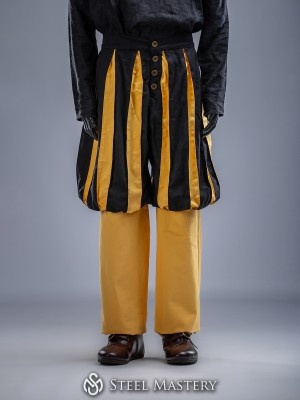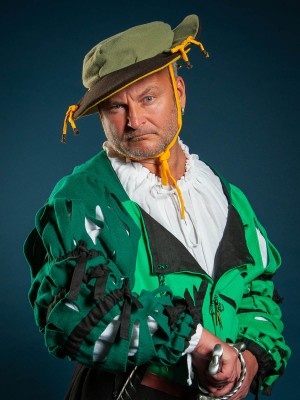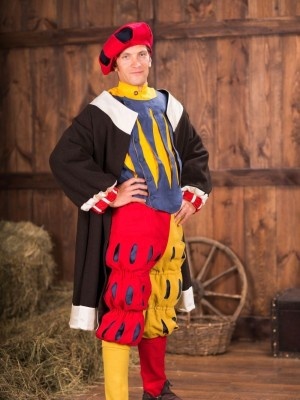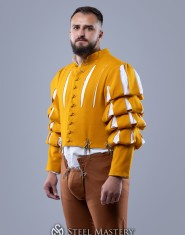A propos Costumes de lansquenets
Welcome to section “Landsknecht’s costumes”. Here you can see different models of clothing, which was typical for German mercenary soldiers of the XV-XVI centuries. All clothing is handmade and tailored according individual customer’s measurements and regards. Our costumes are based on the medieval paintings and gravures.
To order one of these wonderful garbs, you need just to add the wished model to cart and make a payment. After that, our manager will contact you to define your size, measures and colour combination.
If you did not find the wished piece of clothing in this section, we can make it individually for you. Just send picture with detailed description to [email protected]. Then we will advise you price and discuss details of order.
During the Renaissance, European lands went through the times of feudal disunity. Burgundian wars of the 2nd part of the XV century highlighted the need of integration of new military tactics with usage of professionally trained and equipped infantry forces. Therefore, landsknechts became such force.
These mercenary soldiers came of lower class of Germans. However, after a short time, they became the main striking power of various armies and Europe rulers, and even overtopped Swiss foot troops. There was the greater focus on the courage, flexibility, dexterity at the weapon and harsh discipline. Landsknecht’s salary (good enough, by the way) depended on these factors.
However, these soldiers were best remembered for peculiar clothing. Their garbs had so multicolour style and freakish cut, that became a household name. Distinguished scholar and philosopher Erasmus of Rotterdam said about landsknechts: “There is no brighter bird” and it was quite true.
Fair-sized puffed sleeves, plenty of cuts and slashes on the breeches, pants and doublets, where underwear of contrast colours was visible; combination of two, three and more colours – all these features made soldiers' costumes absolutely unique.
Pants and chausses were also varicoloured. Soldiers attached highly decorated bragueta (or codpiece) to the pants. Such codpiece had been stuffed with straw or har for in order to enhance the effect.
Berets and hats with lining were decorated with ostrich or peacock feathers, bows, lacing or with slashes.
With their outfit, landsknechts were breaking the sumptuary laws, which were regulating apparel of each social class in many European countries. However, in the 1503 year, Holy Roman Emperor Maximilian I allowed them such privilege, as one of the few pleasure in their life “so short and brutish”. Soldiers were vying in bizarrerie and flamboyancy of outfit. Besides, their apparel was some kind of visit card for hirer. So, it's not surprising, that they were spending almost all earnings just on clothing.












-0-4-0-1-4-300x400.jpg?v=1746523880)








